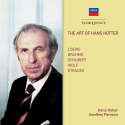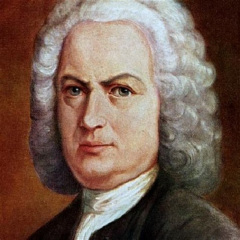
Hans Hotter
地区:德国
生日:1909-01-19(摩羯座)
经纪公司:
Hans Hotter (19 January 1909, Offenbach am Main, Hesse – 6 December 2003) was a German operatic bass-baritone, admired internationally after World War
Hans Hotter (19 January 1909, Offenbach am Main, Hesse – 6 December 2003) was a German operatic bass-baritone, admired internationally after World War II for the power, beauty, and intelligence of his singing, especially in Wagner operas. He was extremely tall and his appearance was striking because of his high, narrow face, wide mouth, and big, aquiline nose. His voice and diction were equally recognisable.
Born in Offenbach am Main, Hotter studied with Matthäus Roemer in Munich. He worked as an organist and choirmaster before making his operatic debut in Opava in 1930.
He performed in Germany and Austria under the Nazi regime, but was unable to pursue an international career until his Covent Garden debut in 1947. After that time, he sang in all the major opera houses of Europe. He made his Metropolitan Opera debut as the title role in The Flying Dutchman (in English) in 1950. In four seasons at the Met, he performed 35 times in 13 roles, almost all Wagnerian.
Probably Hotter's best known vocal achievement was his Wotan in Der Ring des Nibelungen, which he began singing at the beginning of the 1950s and owned until the mid-1960s, by which time his voice had begun to display an incipient wobble due to hard use. He was afflicted, too, with a chronic back injury.
His interpretation of Wotan in the operas Die Walküre and Siegfried was documented as part of the first commercial recording of the Ring Cycle in the early 1960s, with conductor Georg Solti and record producer John Culshaw officiating. In addition, his interpretation of the role of Wotan was captured on live recordings from the Bayreuth Festival conducted by Clemens Krauss and Joseph Keilberth in the mid-1950s. He also directed a complete Ring at Covent Garden from 1961 to 1964. His magnificent portrayal of Gurnemanz in Parsifal was preserved on record in Hans Knappertsbusch's second live recording at Bayreuth; in his old age he switched to the same opera's briefer, and less demanding, part of Titurel (also captured on record).
A much-admired Hans Sachs in Die Meistersinger von Nürnberg, he nevertheless preferred to sing the smaller and lower-pitched role of Pogner later in his career, because its range was better suited to his voice. Similarly, he sang in Parsifal as the baritone Amfortas when he was younger, and switched to the bass Gurnemanz as he aged. He was also celebrated for his Pizarro in Beethoven's Fidelio, of which a live 1960s recording from Covent Garden was issued for the first time in 2005.
Although his international fame was almost entirely in the German repertoire, in Germany itself he was also known for performing Verdi in the vernacular and was, for example a popular Falstaff and a formidable Grand Inquisitor in Don Carlo. He performed, and recorded, several non-German opera roles in German translation, including "Graf Almaviva" (Mozart), Boris Godunov, and Don Basilio (Rossini).
As a Lieder singer he had few peers. Among German male singers of the 1950s and 1960s, only Dietrich Fischer-Dieskau commanded such widespread admiration and affection. Hotter, like his younger colleague, brought a true feeling for words as well as music to the songs of Schubert, Schumann, and others.
His memoirs describe how he got into trouble by making fun of Hitler at parties.According to Hotter's obituary in The Times, Hitler kept Hotter's records in his private collection. When Hotter was interrogated about this, he answered that the Pope had some of them too.
Hotter retired from the stage in 1972, but made occasional appearances in small roles thereafter. He was a notable narrator in Schoenberg's Gurrelieder, a role he continued to take well into his eighties.



























